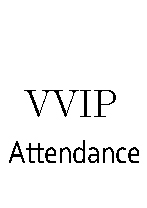| PROGRAMME | |
| DAY ONE (22 August 2017) |
| 08:30 | Registration |
| 09:00 | Introduction |
| 09:15 | Addressing the competition that aquaculture faces at the present and future challenges |
| 10:00 | Morning Refreshments |
| 10:15 | Palm oil industry and roadmap for implementation of strategic aquaculture feed |
| 11:00 | Reviewing the use of palm, as pragmatic measures to reduce the cost of feeding in aquaculture |
| 11:45 | Transforming markets and benchmark against latest innovations and best practices for a sustainable palm oil production |
| 12:30 | Lunch |
| 14:00 | Improving knowledge on nutrient utilization by aquatic organisms |
| 14:45 | The use of palm oil in aquaculture feeds partially or exclusively while ensuring growth, feed utilization as well as body composition of fish |
| 15:30 | Afternoon Refreshments |
| 15:45 | Palm oil, as alternative source of aquatic fish feed for a more sustainable development of the aquaculture industry and the palm oil industry |
| 16:30 | Panel Discussion |
| 17:00 | End of Day 1 |
| DAY TWO (23 August 2017) |
| 09:00 | Introduction |
| 09:15 | The assessment of novel protein and lipid sources in aquaculture feeds to enhance the financial and environmentally sustainability of aquaculture practices |
| 10:00 | Morning Refreshments |
| 10:15 | Evaluate the use of palm oil and its potential in the production of fish feed |
| 11:00 | Why environmental protection and preservation should be made priority in aquaculture development to ensure a more sustainable future |
| 11:45 | Chemical and quality evaluation of some alternative lipid sources for aquafeed production |
| 12:30 | Lunch |
| 14:00 | New breakthrough in advanced equipment and services to the aquaculture farming practices industry |
| 14:45 | Transforming carbon dioxide into palm oil without rainforest destruction and species extinction |
| 15:30 | Afternoon Refreshments |
| 15:45 | Briefing on sustainable palm oil sourcing |
| 16:30 | Concluding Panel Discussion |
| 17:00 | End of Conference |
The use of palm oil as a novel lipid source in aquaculture feeds and reducing the cost of feeding in aquaculture, without compromising growth, feed utilization as well body composition |
|
Aquaculture is becoming an increasingly important contributor to the global food system, while palm oil has the potential to become an alternative source of aquatic fish feed for a more sustainable development of the aquaculture industry and the palm oil industry, There is a need to support new farming practices that seek to optimize production rather than those methods that simply seek to maximize output to the detriment of the broader landscape effect on growth, feed utilization and product quality. Therefore, the use of palm oil in aquafeeds should be well embraced. As such, World Aquaculture Feeds & The Potential Of Palm Oil Utilization Without Rainforest Destruction & Species Extinction Conference 2017 provides a timely platform to review the use of palm oil in aquaculture feeds taking into consideration its availability and price relating it to fish oil and other vegetable oils, its effects of feed quality, growth performance, fatty acid and body composition, all this is geared towards reducing the cost of feeding in aquaculture as well as highlighting the use of palm oil in aquaculture feeds. |








